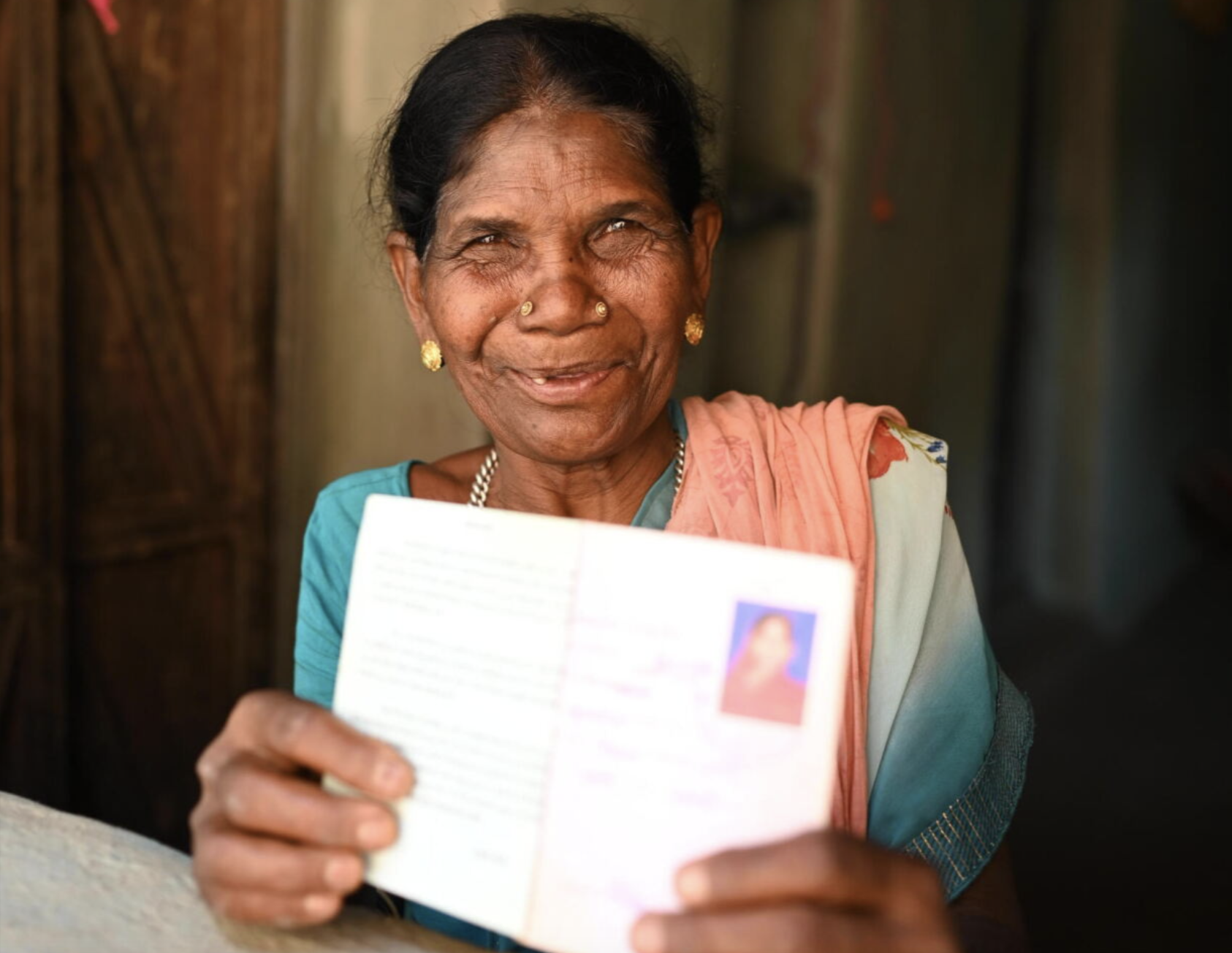When women have access to land, they cultivate futures: How Somari Bai transformed her life, turning barren fields into a thriving livelihood and inspiring her community
#WhenWomenHaveAccess: How Land Rights Transformed Somari Bai’s Life
December 2, 2024

In the remote tribal belt of Chhattisgarh, under the blazing sun, 60-year-old Somari Bai bends over her paddy field, the end of her sari draped over her head for protection against the harsh heat. Her hands move with practiced precision, harvesting the crop that has become her lifeline.
“I have had a hard life, and hard work is what kept my family alive,” she says matter-of-factly, pausing to reflect on her journey. A member of the Gond tribe, Somari’s life took a challenging turn early on when she lost her husband and in-laws in the same year, leaving her solely responsible for raising her two young sons.
With no land to her name, Somari began collecting forest produce—mahua flowers, tendu leaves, and wild fruits—and selling them at the local market. But the income was meagre. “My earnings were so low that I couldn’t afford to educate my sons or even feed us properly,” she recalls.
For tribal women like Somari, land ownership tends to be challenging, leaving many without secure livelihoods. However, the implementation of India’s Forest Rights Act (FRA), which recognizes the contributions of tribal communities to forest ecosystems, brought new hope.
The FRA, with its emphasis on gender equality and joint land titles, has been especially transformative for tribal women across India. It provides them with more than just land—it grants them security, dignity, and the opportunity to lead. With the support of UNDP, the FRA’s implementation has reached over 2.2 million forest titles, impacting countless families like Somari’s. She was granted a land title to 2.5 acres of forest land through the FRA.
This marked a turning point. For the first time, she had a stable foundation to rebuild her life. “When I got my land, I decided to do something different,” she says with pride. Using a borewell she dug herself, Somari began cultivating paddy and vegetables. She was the first person in her village to take such an initiative, selling her produce at government mandis (markets).
This shift transformed her life. Her income soared from Rs. 25,000 to Rs. 1.20 lakh annually. With her newfound stability, she could provide better living conditions for her family and secure her sons’ futures. “My land gave me the courage to dream. It became the foundation of everything I have today,” she says.
Somari’s story is a testament to what happens #WhenWomenHaveAccess. With land rights, she not only secured her livelihood but also became a role model in her community. Her success inspired other women to pursue land ownership under the FRA and explore sustainable farming practices.
Somari’s efforts have also contributed to preserving biodiversity. By cultivating her land sustainably, she plays a vital role in combating the challenges posed by climate change and unplanned development, which have devastated forest cover and traditional sources of livelihood.
UNDP has also supported state governments in linking land rights with other development programmes, ensuring that beneficiaries like Somari receive additional support, including seeds, manure, and irrigation tools. This comprehensive approach has helped marginalized tribal communities become active participants in their local economies.
“When we have land, we have the power to change our futures,” says Somari. For her, land ownership has meant more than a stable income—it has meant hope. For her children. Her community. And for herself.

 Locations
Locations

